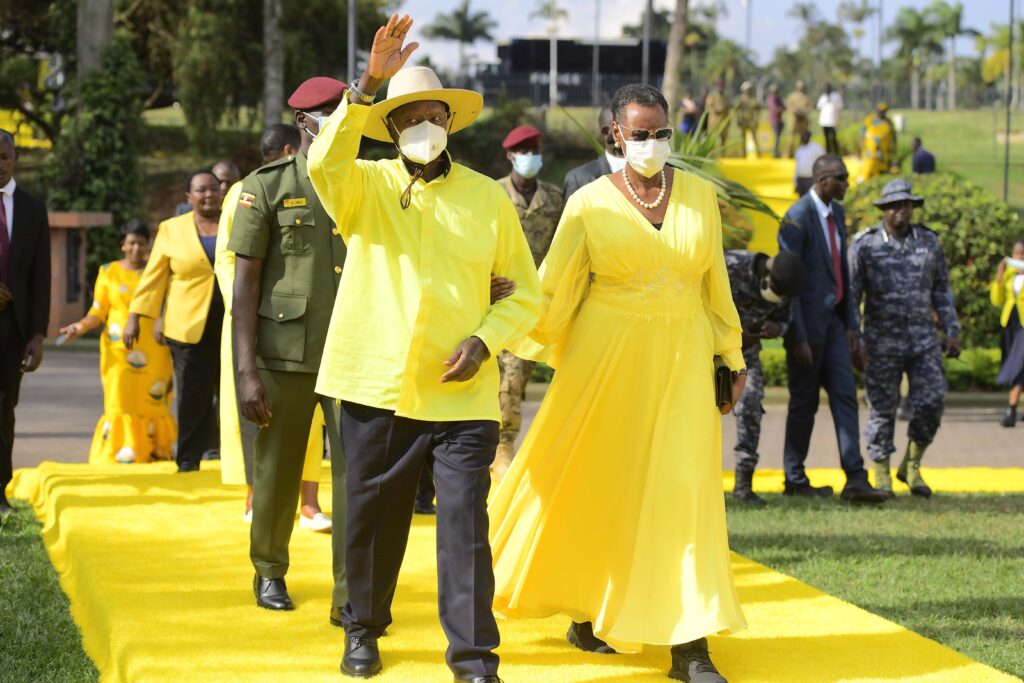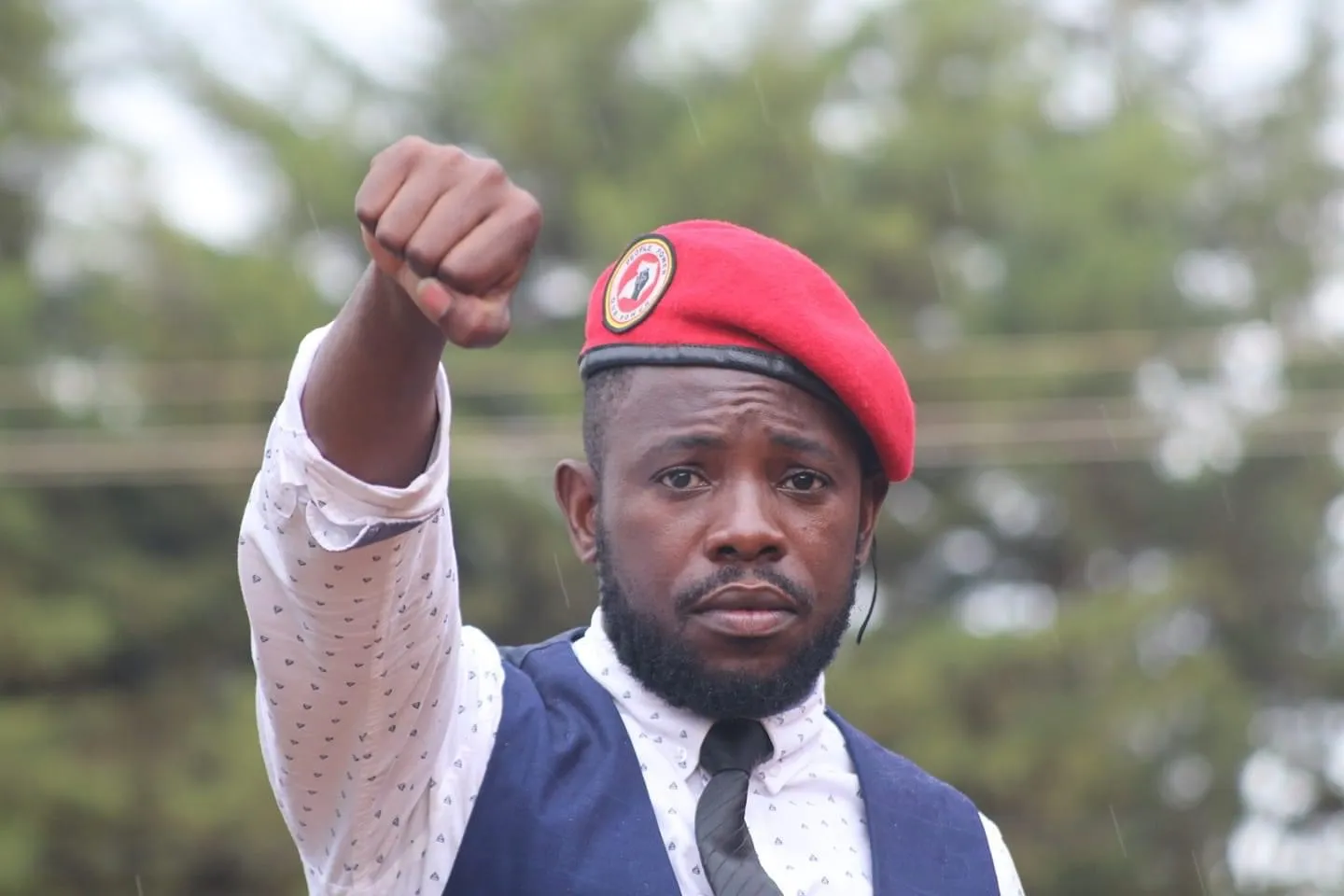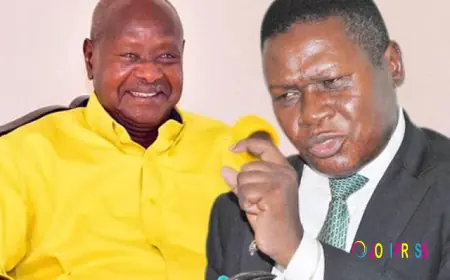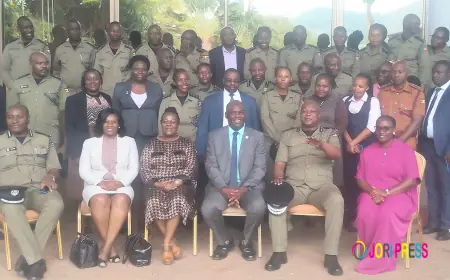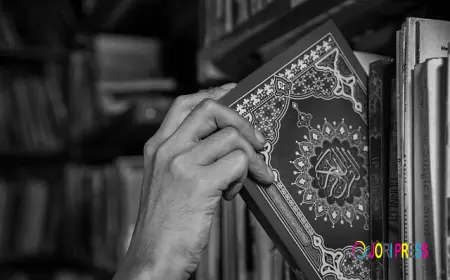Expunging the ghost of Innocent Ngobi Ndiko: An appraisal of the Constitutional Court’s decision on ‘no fault’ divorce in Uganda – Part 5


 The previous four editions of this column identified four faces of the legal apparition which appeared in the majority decision of the Constitutional Court in Innocent Ngobi Ndiko and Others v Attorney General and Another (Constitutional Petition No.23 of 2020):
The previous four editions of this column identified four faces of the legal apparition which appeared in the majority decision of the Constitutional Court in Innocent Ngobi Ndiko and Others v Attorney General and Another (Constitutional Petition No.23 of 2020):
i) the subordination of constitutional principle to majoritarian considerations; ii) an unprincipled failure, or unwillingness, to refer to the Court’s own relevant previous jurisprudence; iii) the imposition of extra-constitutional fetters on the Court’s interpretative role, in this case the invocation of a ‘presumption of constitutionality’; and iv) the treatment of constitutional litigation like ordinary civil litigation.
In this final edition, we examine a fifth face of this juridical ghost, one related to the fourth: the importation into Uganda – without critical distillation through the Ugandan constitutional mechanism – of foreign legal materials (and discourse) of doubtful provenance.
Last week, we remarked upon the strange suggestion, put forward in a separate opinion by Justice Asa Mugenyi, that he might have been persuaded to uphold the petition if the petitioners had presented ‘reports from psychologists and psychoanalysts’ and similar evidence in this regard [at page 8 of his decision].
We noted that this was an under-appreciation of the special nature of constitutional litigation (under Article 137), which requires and envisages a different (more proactive and flexible) judicial approach to such cases. Constitutional petitions are not private actions which seek to vindicate the rights or interests of private persons.
They necessarily implicate profound public questions, founded on the stipulations of the supreme law of the land. As such, the resolution of those questions can and must be a collaborative (rather than adversarial) process in which the petitioners, respondents, amici curiae (and any other intervenors) collectively work to find an answer which best effectuates the critical imperatives of the Constitution.
We also pointed out that it was difficult to reconcile this austere, positivist and black-letter approach to constitutional interpretation and litigation, on the one hand, with the tendency – reflected in the majority decision (in which Justice Asa Mugenyi, alongside Justices Luswata and Kazibwe Kawumi, joined) wherein the majority of the Constitutional Court ‘found’ a number of ‘interesting’ propositions from various parts of the world, and proceeded to apply them in a manner which effectively renders Article 31 of the 1995 Constitution a dead letter.
Thus, at page 39 of the majority opinion, Justice Obura declared: ‘I wholly associate with the view expressed by Scott Yenor in his book …’. Then, at page 40, Justice Obura noted: ‘ln the course of preparing this Judgment, I was able to access an Article by Holland Family Law, a UK based law firm which I found to be credible because of its specialisation and experience in handling family matters.
The authors in their introductory remarks stated as follows …’. Further, at page 47, Justice Obura observed: ‘I also had opportunity to access another Article by W. Bradford Wilcox who stated that …’. It is noteworthy that none of these materials, which the majority ‘found’ or ‘came across’, had been publicly cited to the court in the course by any of the parties in the five years between the presentation of the petition and its determination by the Court.
As such we have a situation where, in resolving a question presented to them by a group of Ugandans, relating to the interpretation of the 1995 Constitution of the Republic of Uganda – the majority of the Constitutional Court of Uganda invoked, and relied upon, foreign materials and opinions, ones which had not been referenced in the presentation of the petition, the response to it, or indeed, the interventions by the amici curiae (friends of the court).
There is certainly no problem with the Court having regard to comparative jurisprudence, or indeed, foreign legal materials, thoughts and opinions, in trying to resolve questions put before them. Indeed, to the extent that large parts of the Constitution reflect the wisdom of humankind through the ages (from the Magna Carta, to the English Bill of Rights, the American Declaration of Independence, the American Constitution, the French Declarations of the Rights of Man and Citizens and others) this posture is not only natural but also logical.
Incidentally, one of the admitted friends of the court was the Initiative for Strategic Litigation in Africa (ILSA), a pan-African and feminist organization based in Johannesburg, South Africa; and one of the Respondents added on application – New Hope Uganda – is a body governed in part by advisory boards based in the United States, the United Kingdom and Canada.
There is nothing nefarious about this. Ugandan constitutional discourse can only become more robust with the considered (and transparent) admission of, and engagement with, a variety of voices and opinions, including those from outside Uganda.
The Constitutional Court is at liberty to choose its friends – a position which was the essence of the ruling of the Supreme Court in the 2016 Amicus Curiae application of Professor Oloka-Onyango and 8 Others.
However, these friends must be chosen through a clear and transparent process, and the opinions they share with the Court must be provided in an atmosphere which allows other persons – especially Ugandan citizens – to respond to, and if necessary challenge, them.
It is deeply problematic for the Constitutional Court of Uganda, in a matter presented by Ugandans, concerning the Ugandan constitution, to go on a frolic of their own, down a garden path in which neither of the Ugandan questioners or discussants were presented with a chance to respond to, or in any other way engage with, the arguments they ‘came across’ during that walk.
It is very fine for the Justices of the Constitutional Court to take a constitutional walk, meet some new constitutional friends, and engage in some constitutional speech with them.
However, to the extent that the matters being discussed touch on the meaning and interpretation of the Ugandan constitution, with respect to questions presented to the Ugandan Constitutional Court by Ugandans, fairness would require that as many Ugandans as possible be allowed to at least interface with, and robustly respond to, the ideas being presented by those ‘new friends’ prior those ideas being reduced into a decision of the Ugandan Constitutional Court.
Instead, in Innocent Ngobi Ndiko, the Constitutional Court of Uganda ‘befriended’ Scott Yenor, W Bradford Wilcox and a British law firm (Holland Family Law). Armed with these ‘pen pals’, the majority of the Constitutional Court then proceeded to introduce a wide-ranging view of Article 31 into our constitutional language, with potentially deleterious effects for the human rights and freedoms of many generations of Ugandans to come.
At the very least, the Court should have allowed the views of these ‘friends’ to be addressed, and challenged, before it ‘wholly associated’ itself with them. This imperative is even greater when it is the Constitution (rather than any ordinary statute) being expounded.
The danger with the Constitutional Court engaging in a ‘friend-finding’ mission on its own, without complete transparency and ‘sunlight’, is that the Court might make certain problematic, bad or even dangerous ‘friends’. To take but one example, one of the ‘friends’ made by the Constitutional Court in the Innocent Ndiko case, is Mr. Scott Yenor.
A cursory Google search reveals Mr. Yenor to have expressed certain deeply problematic views regarding the rights and autonomy of women. For instance, at the National Conservatism Conference held in the United States in 2021, Mr. Yenor appears to have referred to ‘independent women’ as ‘medicated, meddlesome and quarrelsome’ and also to have criticized universities as ‘the citadels of our gynecocracy’.
At the same conference he added: ‘If we want a great nation, we should be preparing young women to become mothers, not finding every reason for young women to delay motherhood until they are established in a career or sufficiently independent.’ He further noted: ‘Every effort must be made not to recruit women into engineering, but rather to recruit and demand more of men who become engineers. Ditto for med school and the law and every trade’.

Finally, the wonderful Mr. Yenor observed: ‘If every Nobel Prize winner is a man, that’s not a failure. It’s kind of a cause for celebration’. If only the Constitutional Court had indicated – perhaps in the course of public, oral argument – that they were minded to make a friend like Mr. Yenor, there might have been an opportunity to sound a warning as to the bad friendship that would arise.
Instead, the majority of the Constitutional Court dedicated not less than seven (7) pages to the views of Monsieur Yenor. So it is that seven pages of a majority decision of the Constitutional Court of Uganda are now dedicated to a celebration of the views of a most dubious ‘friend’ of the Court.
If the Constitutional Court were minded to go down a stroll along the path of legal materials – in search of a ‘national consensus’ (to borrow the title of Chief Justice Emeritus Benjamin Odoki’s account of the making of the 1995 Constitution), then it is quite curious that the Court did not, along this constitutional stroll, find the large body of locally available written thought, touching on the very issue which was before the Court.
They might, for instance, have accessed the views of then Makerere University Law Lecturer, Dr Esther Mayambala Kisaakye (currently Justice of the Supreme Court), in a July 2003 roundtable discussion with Members of Parliament, organized by Law and Advocacy for Women in Uganda (LAWU), in which she expressed the view that the legal regime on divorce was unconstitutional given the needlessly high bar placed in the way of parties willing to secure judicial separation and divorce.
The majority of the Constitutional Court, surely, could have been expected to ‘access’ or ‘find’ or ‘come across’ Dr. Maria Nassali’s book chapter ‘Unfaithful love: A critical analysis of adultery and divorce law in Uganda’; Dr. Zahara Nampewo’s ‘Till violence do us part: A critical analysis of the legal regime on cruelty as a ground for divorce in Uganda’ or Dr. Monica Twesiime Kirya’s ‘Just walk away?
A critical analysis of the legal regime of desertion in Uganda’ – all being chapters in a book, edited by Dr. Maria Nassali, entitled ‘The Politics of Putting Asunder: Divorce, law and the family in Uganda’, published by Fountain Publishers in 2016.
One might credibly wonder why the views of these fine, accomplished and serious daughters of Uganda were completely ignored – and the views of two American men (one of whom apparently believes that educated women are ‘medicated, meddlesome and quarrelsome’) and a United Kingdom law firm given such inordinate prominence.
Which of these sources would better reflect, in keeping with the spirit of Article 126 of the Constitution, the ‘norms, values and aspirations’ of the people of Uganda? Had the majority of the Constitutional Court, before proceeding on a cross-Atlantic voyage of problematic discovery, bothered to consult these more grounded voices, they would have discovered, from Dr. Maria Nassali’s book chapter, the following views expressed by the then Minister of Justice and Constitutional Affairs Maj Gen Kahinda Otafiire, during the 2013 debate on the Marriage and Divorce Bill: ‘We are trying to make sure that we free these individuals that enter into this human relationship voluntarily and ought to exit it voluntarily. We are trying to protect the women of this country – yes, because historically, the women of this country have endured injustice like their sisters all over the world’ (at pages 72-73 of the book chapter, citing page 6745 of the Uganda Parliamentary Hansard on the Marriage & Divorce Bill debate 2013).
The majority of the Court, had they read Dr Zahara Nampewo’s chapter, would have found she recommends: ‘no-fault divorce as one way of strengthening women’s control and choice over their physical integrity, life and health, as well as eliminating women’s subordination in the institution of marriage’
The writer is senior lecturer and director of the Human Rights and Peace Centre (HURIPEC) at the School of Law, Makerere University, where he teaches Constitutional Law and International Law.
What's Your Reaction?
 Like
0
Like
0
 Dislike
0
Dislike
0
 Love
0
Love
0
 Funny
0
Funny
0
 Angry
0
Angry
0
 Sad
0
Sad
0
 Wow
0
Wow
0
